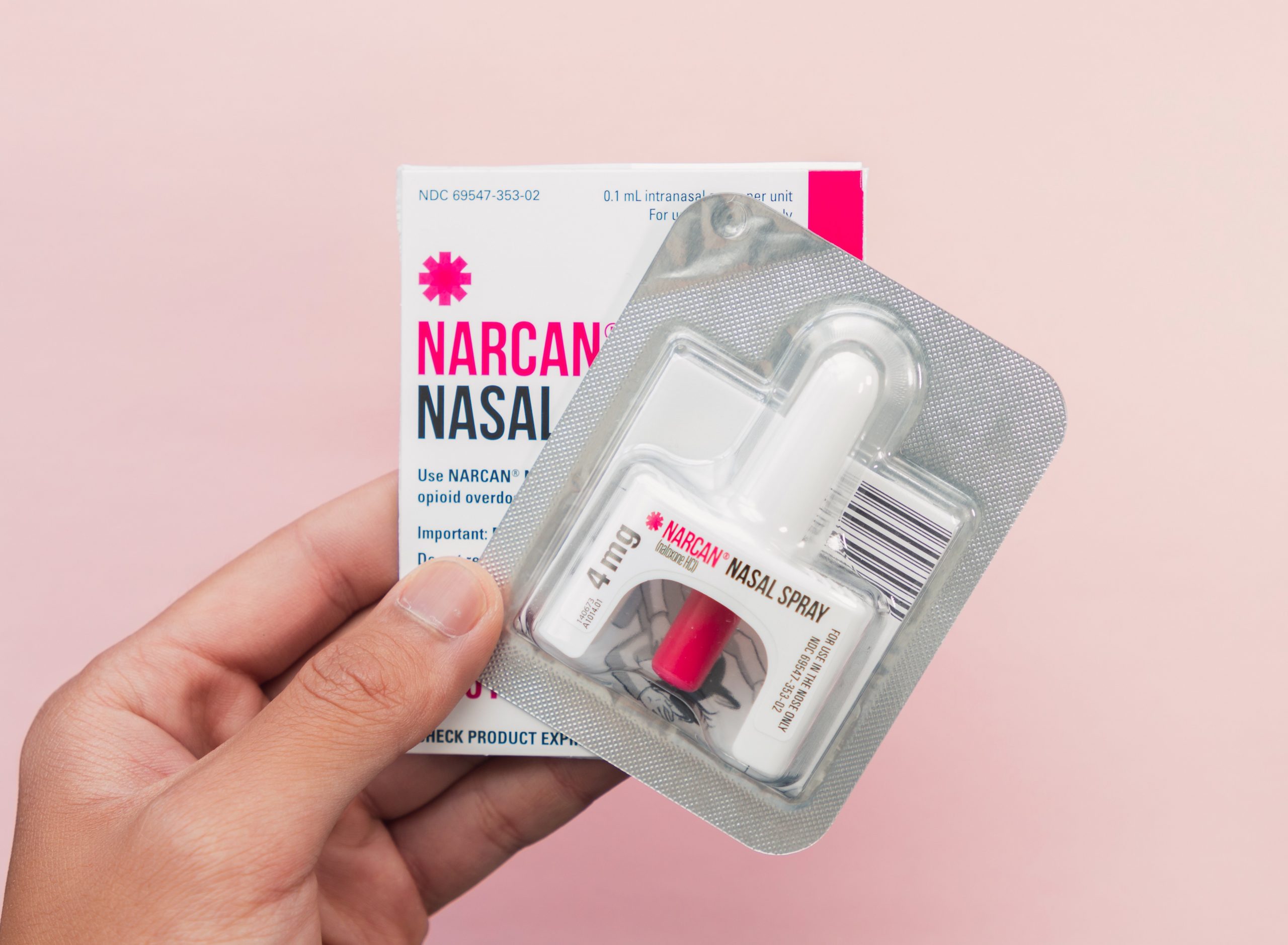
The White House on Wednesday launched a nationwide call for more training and better access to the lifesaving opioid overdose drug naloxone.
Called the Challenge to Save Lives from Overdose, the initiative urges organizations and businesses to commit to train employees on how to use opioid overdose medications, to keep naloxone in emergency kits and to distribute the drug to employees and customers so they might save a life at home, work or in their communities.
“Today, we’re calling on organizations and businesses — big and small, public and private — across the country to help ensure all communities are ready to use this lifesaving tool to reduce opioid deaths,” the White House said in a fact sheet announcing the new initiative. “As the drug supply has gotten more dangerous and lethal, we’re asking allies to join us because we all must do our part to keep communities safe.”
Naloxone, sometimes sold under the brand name Narcan, is a medication that can rapidly reverse the effects of an opioid overdose. Research has shown that using the nasal spray doesn’t call for medical expertise and requires only minimal training.
In March 2023, the U.S. Food and Drug Administration approved an over-the-counter Narcan spray, following that in July with the approval of the first generic nasal spray. Americans can now buy the sprays at pharmacies, grocery stores and vending machines.
Still, public health officials say naloxone can be hard to find and the price can be prohibitive for some, CNN reported.
Organizations that have already answered the White House challenge include the American Library Association, which is providing libraries with overdose response training for staff members and the public, as well as supporting the distribution of naloxone and overdose aid kits to the public, the White House said.
Meanwhile, Southwest Airlines has put naloxone in emergency medical kits on 65% of its planes and plans to stock 100% of its medical kits by the end of the year.
The need for naloxone is great: Overdose deaths spiked 30% between 2019 and 2020 and another 15% between 2020 and 2021, according to the U.S. Centers for Disease Control and Prevention, and synthetic opioids like fentanyl fueled the increase.
And provisional data published by the CDC in February suggests 2023 will be no different: More than 111,000 people died from a drug overdose in the 12-month period ending last September. Synthetic opioids, primarily fentanyl, were involved in more than two-thirds of those deaths.
More information
The National Institute on Drug Abuse has more on naloxone.
SOURCE: White House, news release, March 13, 2024; CNN
Source: HealthDay
Copyright © 2026 HealthDay. All rights reserved.

Leave a Reply